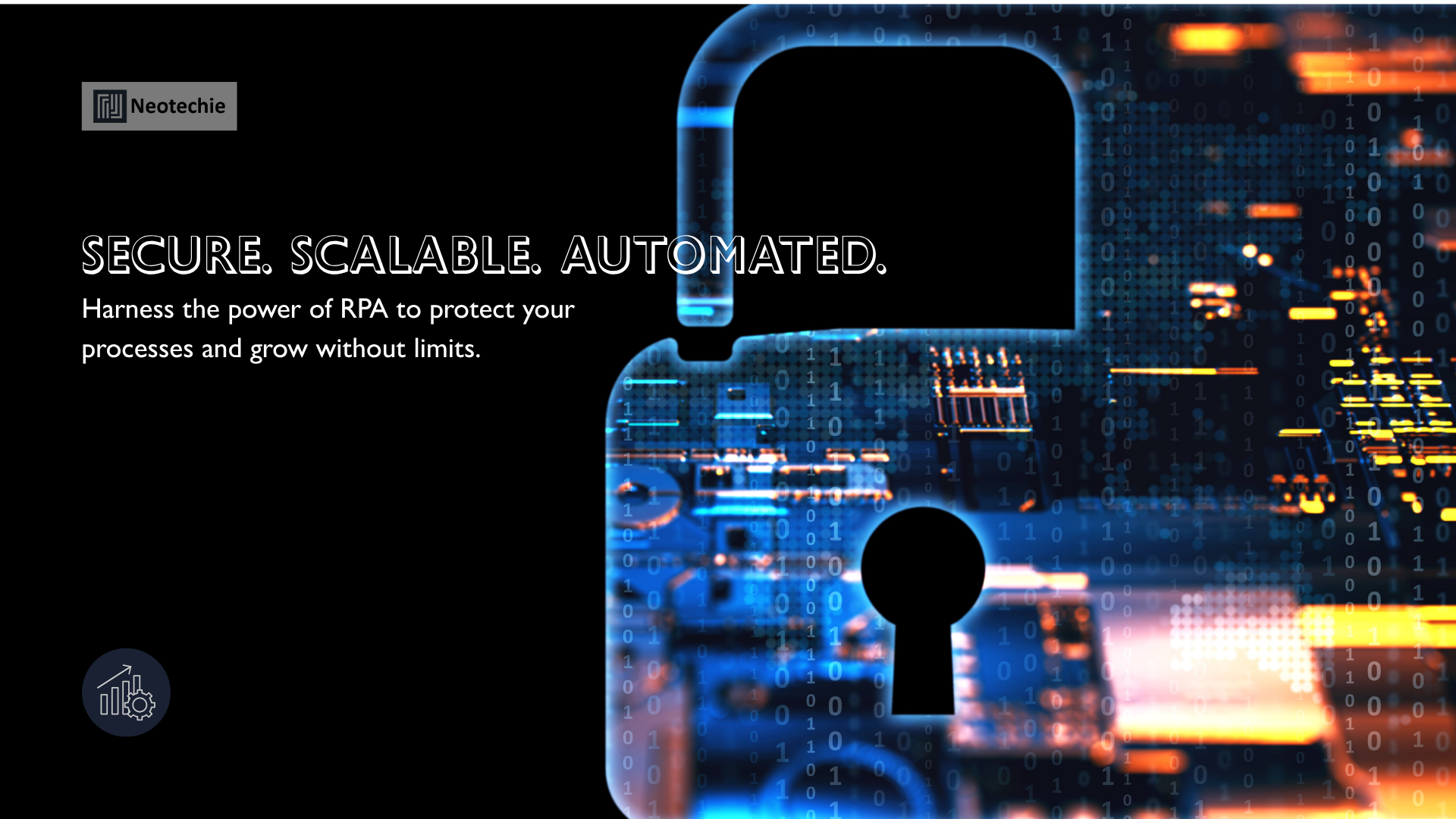Greater Security and Scalability with RPA
Robotic Process Automation (RPA) offers businesses a fast, cost-effective way to automate processes at scale while ensuring full adherence to security and compliance standards. As organizations increasingly rely on automation, RPA plays a critical role in not only optimizing efficiency but also strengthening security and scalability.
Enhanced Security
RPA can significantly enhance IT security by automating tasks that involve sensitive data handling. By deploying bots to execute processes, RPA reduces the need for human intervention, minimizing the risk of data breaches or mishandling. Bots can be programmed with strict security protocols, such as encrypting sensitive information, validating user access, and conducting real-time checks for compliance with regulatory requirements like GDPR or HIPAA. This ensures that security standards are consistently met, reducing vulnerabilities that could otherwise arise from human error or oversight.
Scalability for High-Volume Processes
One of the standout features of RPA is its ability to scale effortlessly. Unlike traditional automation solutions that may require significant infrastructure or time for expansion, RPA can handle both planned and unplanned workloads in real time. Whether it’s processing a sudden spike in customer inquiries, managing large-scale transactions, or handling seasonal surges in demand, RPA bots can adapt to varying volumes without compromising performance. This scalability makes RPA ideal for high-volume business processes, ensuring that operations run smoothly regardless of fluctuations in workload.
Conclusion
RPA provides a powerful solution for businesses seeking both enhanced security and the ability to scale operations efficiently. By automating tasks with a focus on security and elasticity, organizations can future-proof their processes while safeguarding sensitive data.

